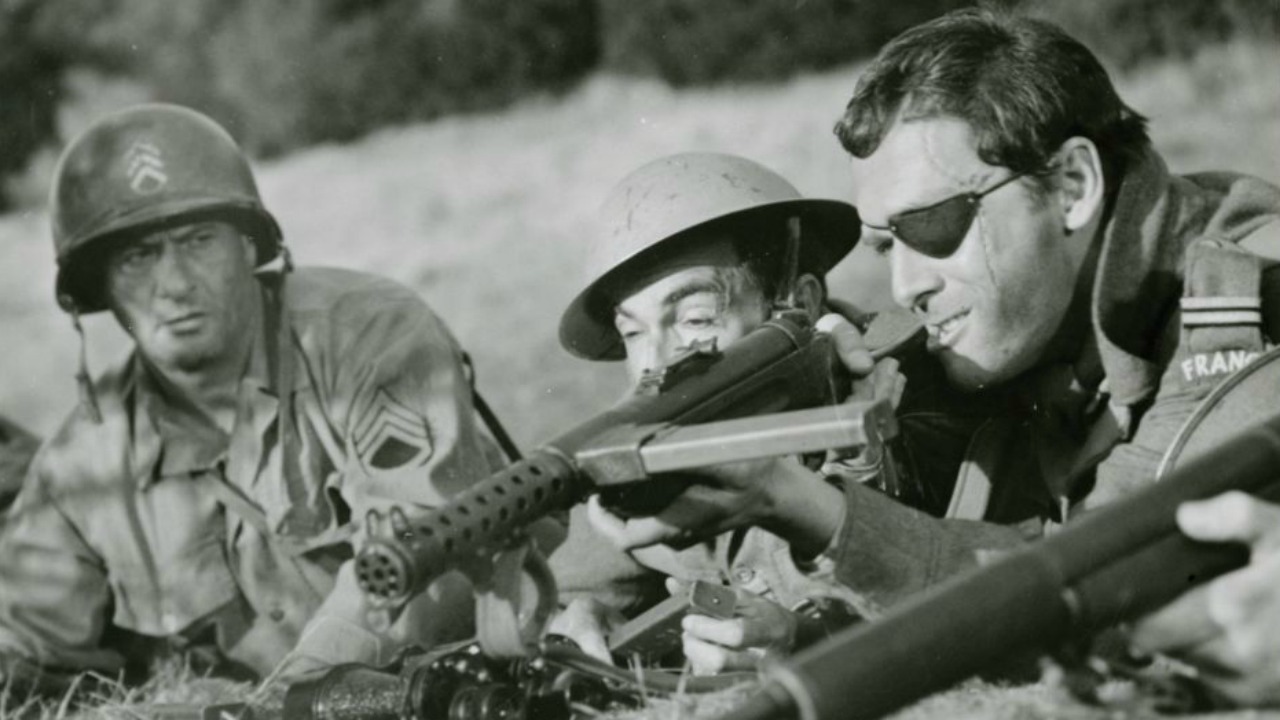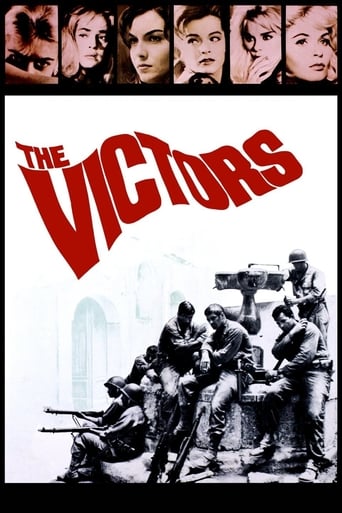

The Victors is an underrated film directed by Carl Foreman and with an all-star cast. The notable performances of lives affected from D-Day to shortly after the war are highly believable, and well-acted. Included in the stellar roles are Eli Wallach, George Peppard, and Vince Edwards. On the distaff side, a very effective Melina Mercouri (the best performance in the film) outdistances all the other female supporting roles. Mercouri plays a Polish refugee who has mastered the black market, the Germans, the Americans, and anyone else who comes into her territory. VInce Edwards gives his role a decent effort, and even Mr. Sunscreen, George Hamilton, almost delivers a believable character. The photography is first-rate and the pacing of the film is impeccable. I highly recommend this as one the best WW 2 films ever to come out of Hollywood.
... View MoreI decided to see this film again, and now know why I forgot it was ever made. Cheap explosions, chunks of history ignored, and more women than every other 60s war films put together for what !!?? How on earth it gets such a high rating beggars belief, as it is presented in the most wooden way possible. A dreadful mess of a so called war drama, that looks so dated now. Better to watch paint dry, as this is one of the worst war films I have ever seen. Believe the other reviews at your peril......be afraid very afraid of wasting your time !!..!!!!!!!!!
... View MoreI did not know this movie, even never heard of it, until it was aired on France 3 channel, in 2006, and presented by the mighty Patrick Brion, the most famous movie buff and American movie industry specialist in France, with of course François Guerif and Bertrand Tavernier. Yes, this war film is for me one of the best ever, if not THE best. The most intelligent and poignant too, on small sequences that you may miss if you pick up your handkerchief during the viewing. The characterization is also outstanding. I feel hurt to know this film was more than cut off. Such a shame. I will look for a full length version of this gem. And I think that when a producer such as Carl Foreman - or even an actor - becomes director, unlike other guys who always have been only filmmakers - that means they have really something strong to show, to express to the audiences. They not only direct to pay their gas or electricity bills. Foreman, produced, directed and wrote this real, genuine masterpiece. I feel hurt for him when I see what happened to this feature. Those b...above him, distributors I mean, destroyed half of his work. That makes me puke. But I keep hope. To, one day, at last watch this entire masterpiece.
... View MoreThis is a truly excellent film and is perhaps the greatest American war film ever made; a soldier's version of The Cruel Sea, where the relentless frightfulness of the war grinds down the participants humanity to a degree they never imagined possible.Too many war films portray some inane gung-ho spirit (any John Wayne film; Where Eagles Dare) or too much manufactured pathos (e.g. any John Wayne film; Saving Private Ryan)to be truly saddening; but The Victors really tears at the heart and mind when showing how ordinary people (soldiers and civilians) are emotionally damaged by the war (e.g. the dog scenes or the violinist's actions that starts the erosion of George Hamilton's basic decency)and we care about their fate or cry at what they become (actually I only felt tears for the final dog scene, but really identified emotionally with Hamilton when he saw the violinist with the oafish soldier).The viewer is given no easy consolation by characters dying to save others or marrying that desolate woman, and will emerge from the film a little sadder, but wiser. I cannot recommend this film too highly.As an amusing (ish) and friendly aside, I have worked out how manufacturers of American helmets could have saved manufacturing costs! How? Easy.......just dispense with the chin straps because no American soldier ever appears to use them in any film I have ever seen and the helmet stays on under all and any conditions!!!
... View More